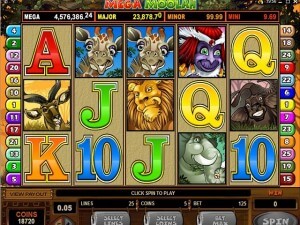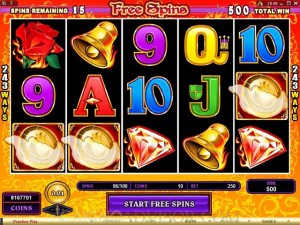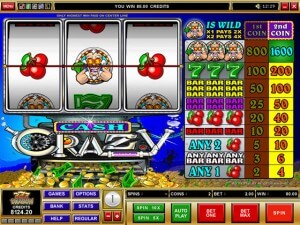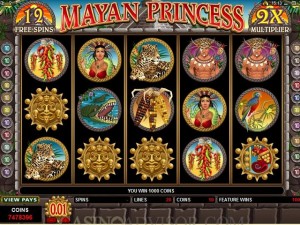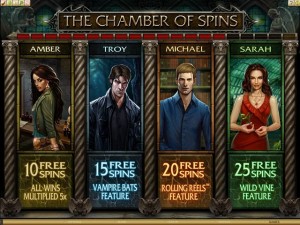
Free slots games impose high risk of gambling problems in young minds – Know the hard reality of playing slots
Recently Center of Addiction and Mental Health (CAMH) in its research and survey found that nearly one in eight high school students played social casino games. There are so many online slot games available to Canadians all free in the form of apps, social casinos at App stores like iTunes or Google play to download on mobile or at play at Facebook with your friends. Also all the Canadian friendly online casinos offer free slots to play without making any deposit. All these free slots are played with free credits or free virtual coins and there is no time limit when to stop your game play as you can keep on playing as long as you want till you or your gaming device exhaust.
But CAMH study shows that free gambling-themed games may be a gateway to paid gambling for young people, and gameplay is linked with a higher risk of gambling problems among some adolescents.
Free games are unregulated
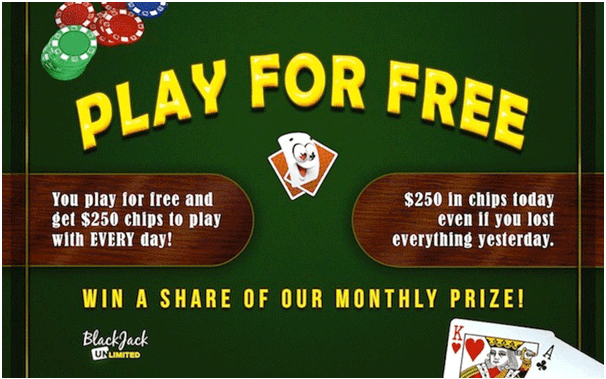
While land or real casinos in Canada offer legal gambling and are off-limits to adolescents as you have a age bar be it 21 and above or 18 plus to play slots but free online games are open to anyone. These free games or social casino games include slots, table games, slots, poker or bingo without betting real money. Players place bets in hopes of winning rewards, and free games offer more virtual free coins or prizes within the game only as these games don’t involve betting or winning real money, they’re not legally classified as gambling and remain unregulated.
According to Dr. Tara Elton-Marshall, Scientist in CAMH’s Institute for Mental Health Policy Research, adolescents’ participation in seemingly risk-free social casino games is a concern because their early exposure to gambling activities is a risk factor for developing gambling problems in the future.
In a new CAMH study published this month in BMC Public Health, 12 per cent of teens in three Canadian provinces said they had played social casino games in the past three months. The findings are from a survey of 10,035 students in grades 9 to 12 (ages 13 to 19) in Ontario, Saskatchewan and Newfoundland and Labrador. The survey asked about three game types: Internet poker, Internet slots and social casino games on Facebook.
Free slots game addiction then lead to real money gambling
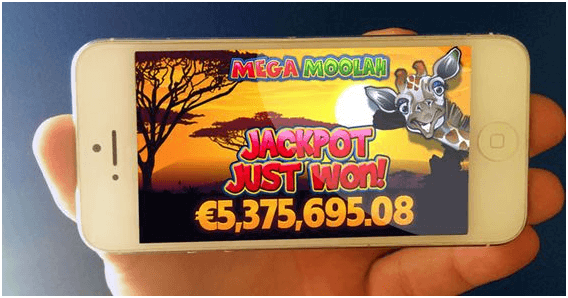
The study also found that adolescents who participated in social casino games were significantly more likely to participate in real money gambling, either online or land-based forms, compared with peers who did not play social casino games.
Dr. Elton-Marshall, senior author of the study believes”While it’s not clear whether young people begin in social casino games and move to gambling for money, or if adolescents who are gambling for money also seek out these free games, there is evidence that social casino gaming may build excitement for gambling and encourage the transition into monetary gambling,”.
It was found that 37 to 50 per cent of young people who gambled for money and played social casino games met criteria for low to moderate or high problem gambling. By contrast, roughly 10 per cent of teens who participated in monetary gambling but not in social casino games scored as having a degree of problem gambling. Scores were calculated using a problem gambling scale created specifically for adolescents, with questions such as how often teens missed activities such as team sports or band due to gambling.
Dr. Elton-Marshall says that social casino games may have higher odds of winning than monetary gambling, giving young people the false impression that they are luckier or better at gambling.
Slot machines with warning labels
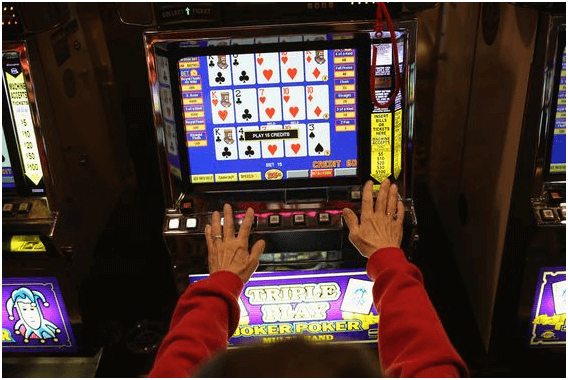
Also other researchers who are professors at the University of Waterloo, studying the gambling behavior of Canadians noted that even though some slot machines have warning labels but Canadians continue to play them. They found that slots games fool people into thinking they are winning, even when they are losing a game. Often players reacted to a near-miss almost as they would if they had won a real game. The players’ overestimation on how much they won didn’t end until they were finished playing. Also, players seemed to think that near misses got them closer to winning, when, in fact, each spin operates independently.
After their initial research, the professors decided to play warning labels on the slot machines. They wanted to see if people would stop and think about what they were doing before they began to gamble. The warning labels told players about the history of the game. and that the game made either frequent, small payouts or larger payouts that occur less often. The labels also noted how often a player could hit the bonus round. Finally, the labels warned players about the payback percentage of the game. This is the percentage of all the bets by players that go to the casino.
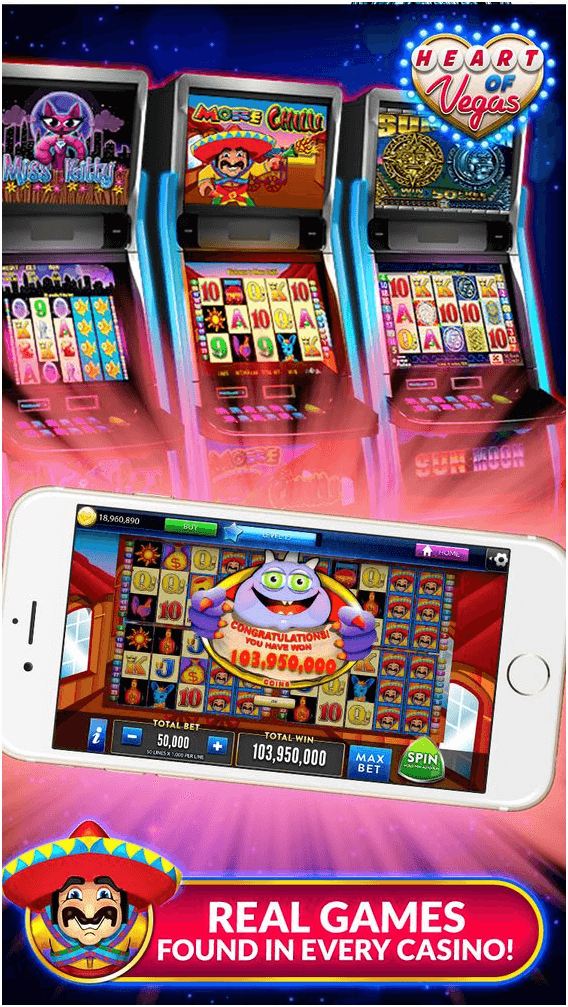
After the professors posted warning signs on slot machines, they continued to study gamers to see if the warning labels had any effect. In all, the researchers put warning labels on 250 slot machines at a race track/racino in Ontario. What the professors found was, despite the warning labels, players continued to gamble. The players stated they thought they were going to hit the next big jackpot. Therefore, the “rules” and the odds of the slot didn’t apply to them. Second, some people were so focused on gambling that they were not aware of the labels.
So any solution to problem gambling?
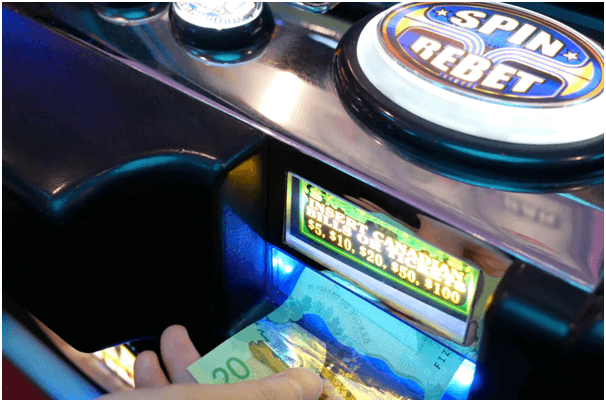
With the growing number of free slots and social casino games apps over the past years, and high levels of screen time among young people, it is time to take action so that we are not addicted to gambling whether free slots or real money games. It’s important for young people, parents, teachers and others to be aware that these risks exist.
- Have time limit to play free slots. Do not continue to finish all the levels of the game at one go.
- Opt to play solo so that you are not in a competition to win the game as soon as possible
- Avoid Facebook messages from your friends that invite you to join a particular slot game or video social casino app to join.
- Devote your time to other hobbies or social welfare as volunteering for community services rather than going blind by playing slots for hours
- At online casinos also set a time limit to play free slots. Playing for say 45 minutes or one hour is enough to be entertained and have fun playing slots.
- Never continue to gamble on the machines because you believe that they could beat the odds.
- If you feel you are getting addicted to gambling or games then talk with your parents or get professional help here.
Note that the Centre for Addiction and Mental Health (CAMH) is Canada’s largest mental health and addiction teaching hospital and a world leading research centre in this field. CAMH combines clinical care, research, education, policy development and health promotion to help transform the lives of people affected by mental illness and addiction. CAMH is fully affiliated with the University of Toronto, and is a Pan American Health Organization/World Health Organization Collaborating Centre.
Remember the warning signs of addiction or playing free slots is also there, but it is your own decision what you want out of your life: to become a problem gambler or to become a responsible citizen of Canada.

